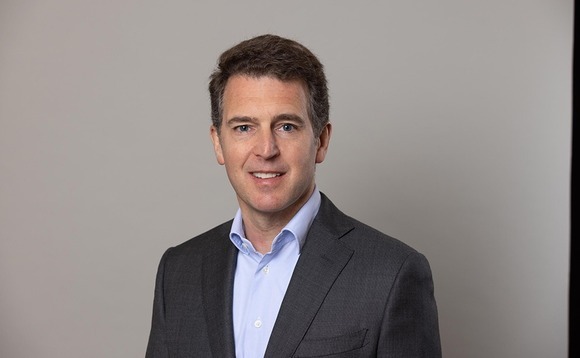
GP Profile: Apheon builds on family roots, mulls exits and reinvestment opportunities

Belgium-headquartered Apheon (formerly Ergon Capital) is aiming to build on its track record of acquiring family- and entrepreneur-owned companies as it considers exit and reinvestment opportunities that will allow it to back some of its strongest portfolio companies for longer, CEO and Managing Partner Wolfgang de Limburg told this news service.
The firm is considering reinvesting more alongside buyers when it sells its portfolio companies, de Limburg said. "In many instances, we are offered the opportunity to do so by the purchasing shareholders and we are keen to reinvest to keep exposure to these good assets."
One recent example is medical devices business Palex, where the firm reinvested alongside Fremman Capital when realising its investment. Apheon's continued involvement in Palex facilitated "the successful conclusion of value-enhancing steps initiated under our ownership," said de Limburg. "When you come to know a company and management that well after five years, you want to keep some exposure, especially when you know the company is going to continue on an accelerated growth path. We have a number of family offices and families in our LP base who would encourage this," he said.
Apheon's previous portfolio companies include Italy-based luxury fashion platform Golden Goose, which is now owned by Permira; France-headquartered theme park group Looping Group, which was acquired by Mubadala Capital in 2019 and is now owned by PAI Partners; and aluminium products producer Corialis, which it sold to Advent International in 2014.
"We are always willing to create liquidity for our investors. However, we would not go to the market with a company that is not ready – that remains the primary criterion for each exit process," he said. "Looking across the current portfolio, we have two to four companies that we think will be ready for exit within the next 12-18 months."
The company with the highest Likely to Exit (LTE)* score in Apheon's portfolio is natural flour and malt ingredients producer MillBio. According to Mergermarket's predictive algorithm, the company has an LTE score of 68, weighted largely by previous Mergermarket intelligence relating to the asset, including a report tipping the business as a potential 2023 exit candidate.
"We get approached reasonably often on MillBio," said de Limburg. "It is truly a star company in a unique niche, providing ‘clean label' solutions to industrial bakeries and other customers to replace synthetic preservatives with natural ingredients."
The original deal was announced in 2020. According to de Limburg, it came about as Italy-based Millbo wanted to buy larger US market peer Bionaturals. "This was a significant and transformational transaction," he said, noting that Apheon formed MillBio by combining the two companies, leveraging its partnerships and execution capabilities with all sides.
The process was a complex one for several reasons, including the fact that the two companies were each other's suppliers, the fact that the target was larger than the acquirer, and that it was a cross-continental deal. All these added to the challenge. "It wasn't a plain vanilla situation, and many funds would have shied away," said de Limburg.
Family roots
Since its inception, the GP's goal has been to "do private equity differently", according to de Limburg. "There was, and still is, a strong belief that PE is dominated by secondary intermediated deals, but these transactions are not always well-suited to founders and families who are looking to sell or raise capital," he said. These potential sellers are often seeking a partner with "a more family-minded entrepreneurial approach", rather than one that just executes a "purely financial transaction", he said.
"Often when we run a deal, we work directly with one family or one founder, helping them to professionalise their companies step by step, all the while retaining the culture and maintaining continuity in the companies they originally built," he said.
Apheon, known then as Ergon, was founded in 2005 with EUR 150m from Belgian investment holding company GBL and ING. Apheon developed its own family and entrepreneurial DNA in this original structure, de Limburg said. Although it had been operating fairly independently prior to 2015, it has been fully independent and 100%-owned by its own partners since then, de Limburg said.
"In the public and media, our name has still remained very much linked to GBL despite the independence, so we wanted to rebrand to a name and identity of our own," he said.
The rebranding process saw the GP involve all of the management team members and board members of its portfolio companies, as well as the firm's group of senior advisers and its local advisory network in each of its core geographies. "It was a very thorough 360-degree introspection, which took us two years, and from these extensive conversations and reflections emerged Apheon, a brand that we felt would match the firm's identity," he said.
The GP had around EUR 500m of AUM in 2015 and today manages EUR 2.5bn in its flagship funds, co-investments and continuation funds.
Following the rebranding, the firm has not changed its team incentivisation structures, having always been "quite collegial" in how it does things, de Limburg said.
"We operate in six countries across Europe and have one carry pool for the whole firm," he said. "In contrast, at many larger funds with teams in that many geographies, you might find a more siloed system. We believe that our approach brings our team a lot of discipline: no single country team is under pressure to close a deal every year; we can take a step back as we are fishing from a bigger pond across countries to find the best opportunities."
This structure also fits well with its value creation levers. "We do a lot of internationalisation via M&A – so, for example, our team in France might spend two months working on an add-on for a German deal," said de Limburg. "The common carry pool removes some deployment pressure and allows our teams to bring more value to the portfolio as a whole."
Deployment and deal sourcing
Apheon invests in the Benelux region, as well as in Germany, France, Italy and Spain. It backs companies with EUR 10m-EUR 20m EBITDA, aiming to bring them to EUR 30m-EUR 40m. It is currently deploying equity via Apheon MidCap Buyout V (AMB V), which held a final close in 2022 on EUR 800m, as reported.
So far, the GP has executed five deals and deployed 35% of the fund's commitments, said de Limburg. "We have a number of opportunities in the pipeline for the rest of 2023 and into 2024, which will bring the fund to full deployment. We are hence expecting to come back to market with AMB VI sometime in 2H 2024."
The firm originates its deals with the assistance of a database comprised of all the companies that it is or has been following in each of its core geographies, which it calls the "farm", de Limburg said. "On average, one to three investments a year emerge from the farm, after a patient and structured long-term approach to convert them from opportunities to executions."
The firm also sources deals via more opportunistic situations, where it sees "a slight pickup in activity after a period of slowdown", he said.
"From our database, it's clear that a lot of companies are seeing their performance soften after 10 years of straight growth, and some are more open to doing a deal now than they were in the boom years," he added.
Latest News
Stonehage Fleming raises USD 130m for largest fund to date, eyes 2024 programme
Sponsor acquired the public software group in July 2017 via the same-year vintage Partners Group Global Value 2017
Stonehage Fleming raises USD 130m for largest fund to date, eyes 2024 programme
Czech Republic-headquartered family office is targeting DACH and CEE region deals
Stonehage Fleming raises USD 130m for largest fund to date, eyes 2024 programme
Ex-Rocket Internet leader Bettina Curtze joins Swiss VC firm as partner and CFO
Stonehage Fleming raises USD 130m for largest fund to date, eyes 2024 programme
Estonia-registered VC could bolster LP base with fresh capital from funds-of-funds or pension funds









